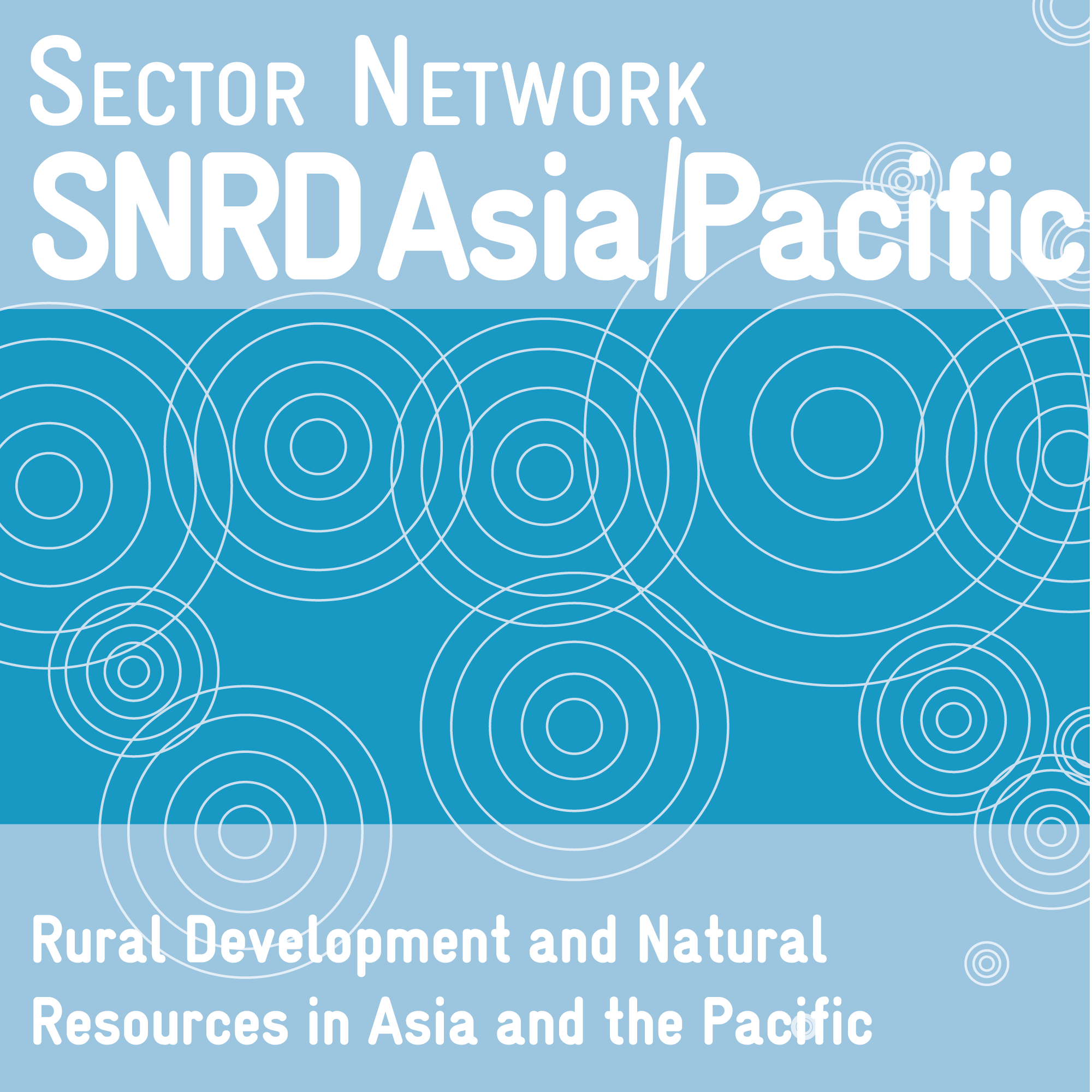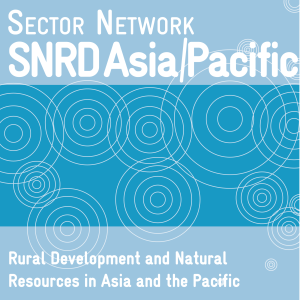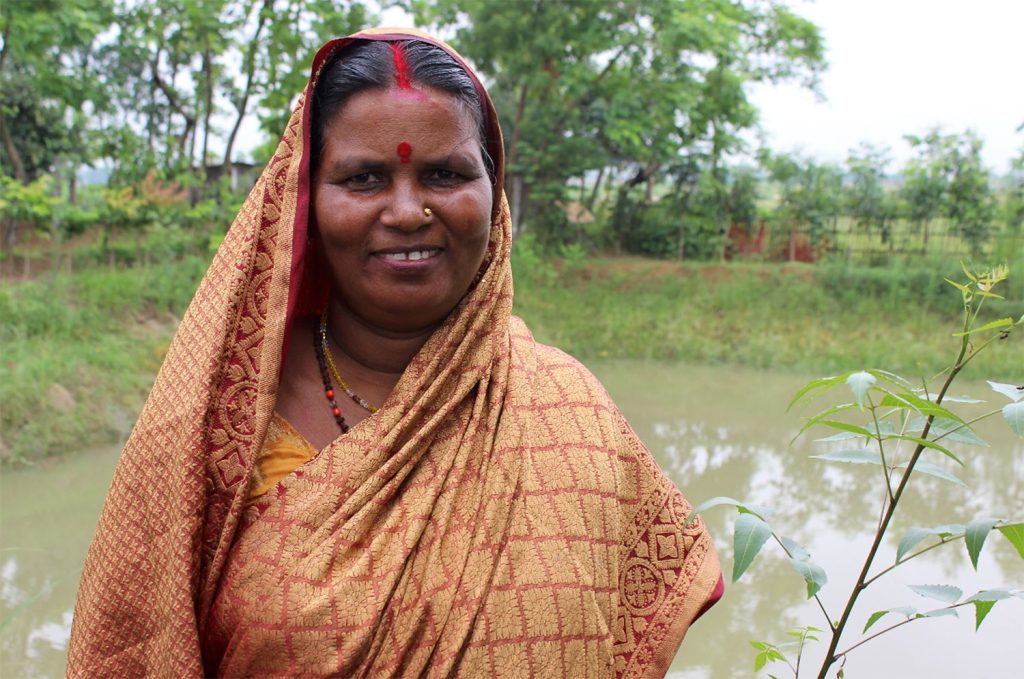
Fishing for a Future: The Economic Upliftment of Araria Through Aquaculture
Aquaculture, the practice of cultivating fish and other water-based products like foxnuts, etc., has emerged as a transformative force in enhancing the livelihoods of rural communities. In the Indian state of Bihar, this practice has significantly contributed to the socio-economic upliftment of local populations. With the region’s abundant water resources and increasing demand for fish, aquaculture has the potential to provide a sustainable means of income generation and food security. This article explores how aquaculture is boosting the living incomes of communities in the Indian state of Bihar, and the various benefits it brings to the region.
As per Ministry of Fisheries, Animal Husbandry & Dairying, India is the third largest fish-producing nation. The fish production of the country is 162.48 lakh tonnes in 2021-22. A study done in 2024 by the Responsible Seafood Advocate, projects that the demand in India is expected to double by 2048.
Bihar, located in the eastern part of the country, is primarily an agrarian state with a significant portion of its population engaged in traditional farming. However, lack of technical knowledge, frequent flooding, low productivity, and limited agricultural diversification have historically constrained economic growth. The region’s high poverty rates and lack of alternative livelihood opportunities have made economic stability a persistent challenge for the rural households.
The Indo-German development cooperation project, ERADA (Enhancing Rural Resilience through Appropriate Development Actions), aims to strengthen the livelihoods of vulnerable households, including indigenous groups, women-headed households, and migrant communities, by utilising locally available natural resources and developmental support programmes. The project is commissioned by the Federal Ministry for Economic Cooperation and Development (BMZ) in cooperation with the Ministry of Rural Development, Government of India. The project employs a living income enhancement approach for these vulnerable households. Using the globally recognised ‘Anker methodology’, ERADA conducted a living income benchmarking study with 576 Euros as the living income gap of Araria district of Bihar. By recognising the potential of the region’s water bodies, such as ponds, rivers, and floodplains, and the year-round demand for fish, aquaculture seemed like a viable livelihood option. The capacity development for aquaculture was done in collaboration with the Indo-German Project on Sustainable Aquaculture for Food and Livelihood (SAFAL) under the Global Programme Sustainable Fisheries and Aquaculture.
Mansa Devi, a farmer from a marginalised community, has undergone a significant transformation after taking 13 days of training on aquaculture-based livelihood. Her husband worked as a fisherman in other people’s ponds, earning some fish and a daily wage. Meanwhile, Mansa Devi managed their other sources of livelihood, including goats, hens, and their farm. They owned approximately 1.3 acres of land, where they cultivated jute and corn. The additional responsibilities of childcare, household management, healthcare and cultivating a limited crop strained her income.
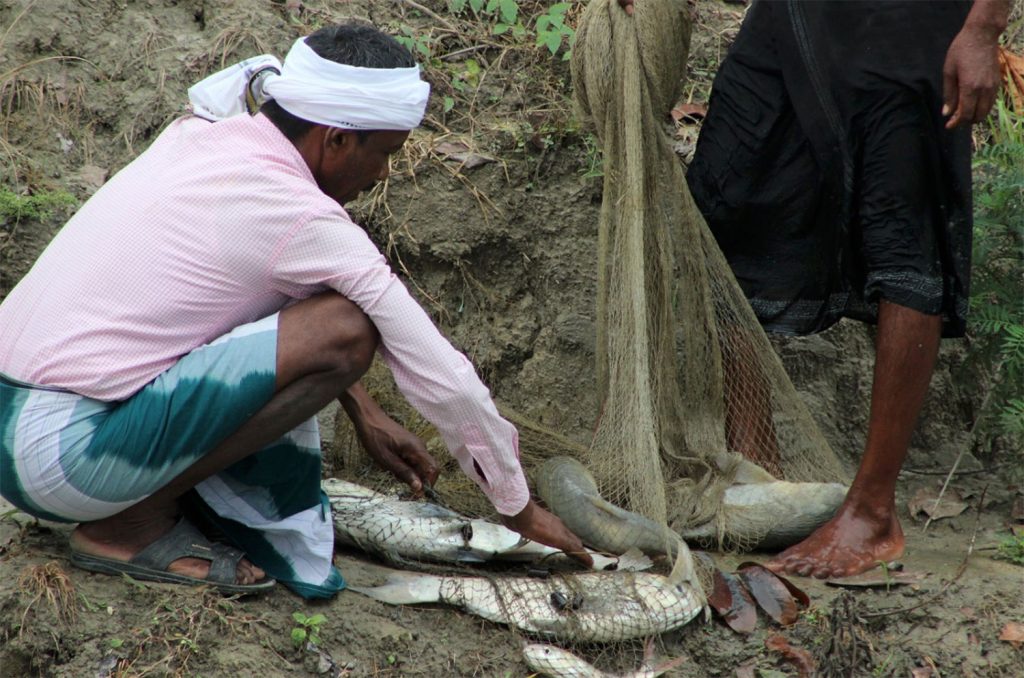
Through the ERADA project, Ms. Devi got access to Mahatma Gandhi National Rural Employment Guarantee Scheme (MGNREGS) public employment programme. She constructed a pond in some portion of her land through MGNREGS, despite initial reluctance from the husband. Mansa Devi got 556 Euros through the MGNREGS programme for pond construction. After getting the training, she got fingerlings in her pond to cultivate fish instead of fry which resulted in a low mortality rate. Now she hosts a variety of fish species in her pond like Catla (Catla catla), Rohu (Labeo rohita), Silver Carp etc. which she sells at different price points. This year she had a whooping two quintal production. The estimated annual average income per harvest for Mansa Devi is approximately 833 Euros from aquaculture. She can support her family for medical emergencies. Besides aquaculture, she sells products from her 5 goats, a few hens, and crops like moong dal (Green Gram Beans), peanuts, corn, and jute leaves, building a sizable income. However, she prefers aquaculture over crop cultivation and plans to reinvest and expand her venture by building two more ponds to increase production.
Through her success in aquaculture, Mansa Devi has become an important social figure in her community and the nearby region. As a Community Resource Person (CRP), she connects with other women in her locality to do fisheries. Her financial strength has increased her decision-making capabilities, allowing her to take on leadership roles and inspire others.
Mansa Devi hopes that all the women under her guidance can profit similarly. She says ‘Hum padhe likhey nae hain par jo bhi training mein seekha sab mujbaani yaad hai (translates in English as I don’t know how to write but I remember everything I was taught during training by heart’. Her journey from managing multiple livelihood sources to becoming a successful fish farmer and community leader illustrates the transformative power of aquaculture in improving the lives and incomes of rural marginalised communities, mainly women.
The focus of the aquaculture initiatives in Bihar, spearheaded by ERADA, is enhancing the livelihoods of rural communities. By providing comprehensive training, technical inputs, and essential resources, these initiatives have so far empowered 800 women like Mansa Devi to successfully manage and profit from aquaculture. The benefits extend beyond increased income, fostering confidence and leadership among women farmers, who now advocate for and sustain aquaculture-based livelihoods. Now her husband says, ‘You proved us wrong by believing in yourself’ and acknowledges her decisions in the family. Mansa Devi’s journey exemplifies the transformative potential of aquaculture, offering a blueprint for sustainable development and economic resilience in rural Bihar.
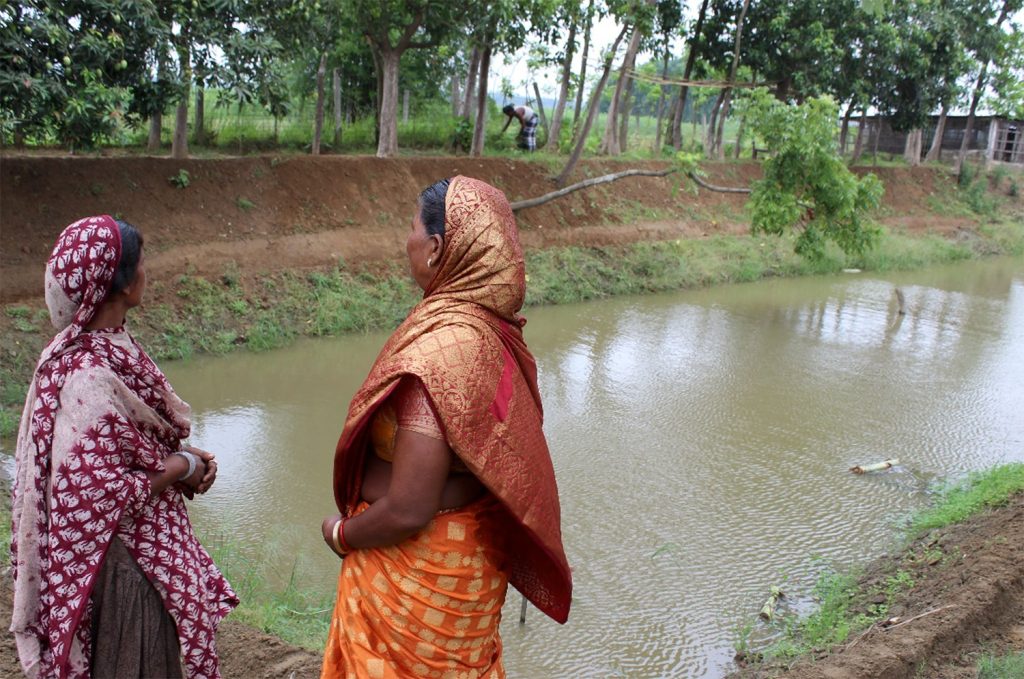
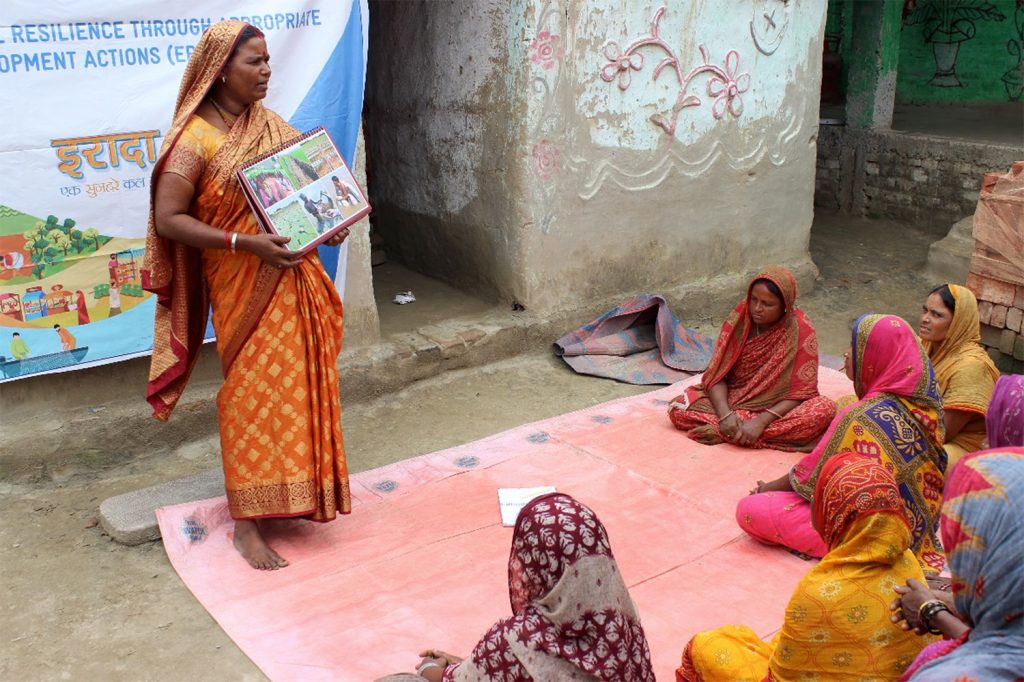
Link to Further Materials
Enhancing rural resilience through appropriate development actions (ERADA) – giz.de
Contact Person
Key Buzzwords
Rural Development, Rural Livelihoods, Aquaculture, MGNREGA, Public Employment Programme, Gender, Indian state of Bihar, Living Income

